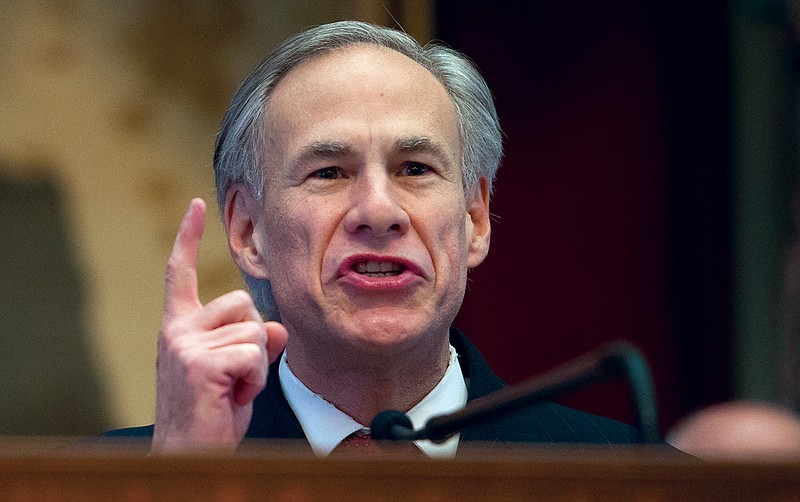AUSTIN-Gov. Greg Abbott says state legislatures nationwide should convene a convention to amend the U.S. Constitution and restore freedoms embodied by President Ronald Reagan.
But Texas lawmakers have been trying to rewrite the Constitution since before Reagan took office-and even since before he was
born.
The Legislature has called for a convention to propose constitutional amendments 16 times previously, according to a list compiled by Gregory Watson, legislative director for Fort Worth Republican Rep. Stephanie Klick. The first one in 1899 was boundless, simply "proposing amendments to said Constitution"-but later calls got far more
specific.
In 1911, lawmakers wanted a constitutional convention to prohibit polygamy. In 1949, they sought to stop federal seizure of state tidelands. There was a call for one to overhaul the Electoral College in 1963. Nine years later, the Legislature backed a constitutional convention for an amendment opposing forced busing to integrate public
schools.
Abbott has nine reforms he'd like enshrined in the Constitution and a key one is a federal balanced budget amendment. But the Legislature already called for a constitutional convention on that very issue in 1977 and
1978.
Klick has introduced legislation voiding Texas' previous convention calls. A measure by Republican Sen. Craig Estes of Wichita Falls goes farther, seeking to rescind "each and every application made at any time." The idea is to replace all that historical clutter with a call to advance only top modern, conservative
goals.
The Texas Senate is poised to pass a call for a constitutional convention early this week, including Estes' slate-clearing proposal. If ultimately approved, the new directive should stand until some future Legislature decides it too wants to call for a constitutional convention-and for new, better, reasons than those devised way back in
2017.

